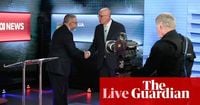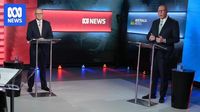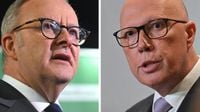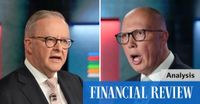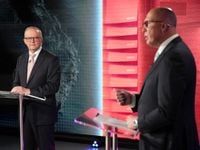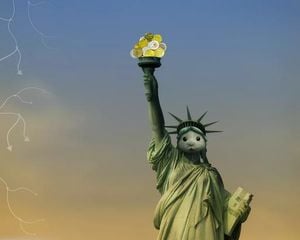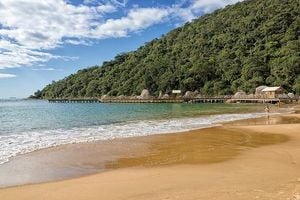In the lead-up to the Australian Federal Election, Prime Minister Anthony Albanese and Opposition Leader Peter Dutton faced off in their second leaders' debate on April 16, 2025, at the ABC's new Parramatta studios. As the election date approaches, both leaders aimed to solidify their positions and sway undecided voters during this pivotal moment in the campaign.
The debate, which began at 8 PM, was marked by a series of exchanges on key issues including housing affordability, climate change, and international diplomacy. Dutton opened the debate by posing a crucial question to voters: "Are you better off today than you were three years ago?" This rhetorical device set the stage for a discussion that would touch on the economic challenges facing many Australians.
Albanese responded by emphasizing Labor's plans to address housing supply, asserting that the government is committed to tackling the crisis. He stated, "Labor’s plan addresses supply," while Dutton countered by blaming migration for the ongoing issues in the housing market. The contrast in their approaches highlighted the differing philosophies of the two leaders as they seek to appeal to voters.
Climate change also emerged as a significant topic during the debate. When asked about the impacts of climate change, Dutton's response was notably cautious: "I’m not a scientist." This evasion was sharply contrasted by Albanese, who asserted that "the science is very clear" regarding climate change and its economic implications. The Prime Minister's comments served to underline Labor's commitment to addressing environmental issues, while Dutton's hesitance reflected the Coalition's ongoing struggle with this contentious topic.
The debate also delved into international relations, particularly the trustworthiness of global leaders such as US President Donald Trump and Chinese President Xi Jinping. Both leaders were asked if they trusted these figures, with Dutton stating he didn’t know them personally, while Albanese maintained he had "no reason not to trust" them. This exchange highlighted the differing diplomatic stances of the two leaders, with Albanese advocating for a more engaged approach.
In a moment that drew significant attention, Dutton acknowledged a mistake regarding comments he made about Indonesia and Russia. He had previously claimed that the Indonesian president announced a Russian proposal to base military aircraft in the country, a statement that was later proven incorrect. Albanese labeled Dutton's comments as "extraordinary" and indicative of a lack of understanding of necessary diplomatic relations.
As the debate progressed, both leaders faced tough questions about their policies and past decisions. Albanese pointed out that both sides of politics have not done enough for Indigenous Australians, a sentiment that resonated with many viewers. He stated, "Neither side of politics has done well enough for First Nations people," acknowledging the need for more comprehensive strategies to address these issues.
Following the debate, the political commentary suggested that neither leader landed a decisive blow. Political analysts remarked on the defensive nature of both candidates, with Albanese having to defend his record while Dutton struggled to provide concrete details about his policies. Melissa Clarke, a political correspondent, noted that the debate lacked "competing inspiring visions," reflecting the cautious strategies of both leaders.
Outside the studio, around one hundred protesters gathered, organized by Students for Palestine, calling for Australia to cease its military support for Israel. This demonstration underscored the broader social issues at play during the election campaign, highlighting the diverse concerns of Australian voters.
As the election draws closer, with polling day set for May 3, 2025, the leaders' debate served as a crucial platform for both Albanese and Dutton to present their visions for Australia. The upcoming final leaders' debate, scheduled for April 27, promises to be another key moment in the campaign, as both leaders prepare for the final push to secure votes.
With early voting beginning on April 22, the stakes are high for both parties. Albanese's emphasis on a diplomatic approach and commitment to addressing climate change contrasts sharply with Dutton's focus on safety and prosperity. As Australians prepare to head to the polls, the outcome of this election remains uncertain, with both leaders vying for the support of a diverse electorate.
In the end, the debate was less about decisive victories and more about setting the stage for the final days of the campaign. Voters are left to ponder the implications of each leader's promises and the direction they envision for the country. As the electorate weighs their options, the question remains: which leader will ultimately earn their trust and support?
